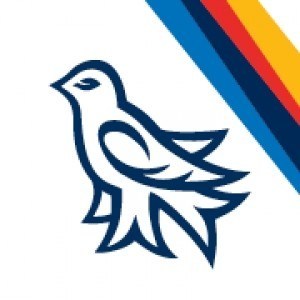Photos of university / #universityofvictoria
Program Overview
The University of Victoria offers a comprehensive Dispute Resolution program designed to equip students with the essential skills and knowledge necessary to effectively manage, mediate, and resolve conflicts across a variety of settings. This program emphasizes practical application, critical thinking, and ethical considerations, preparing graduates to serve as mediators, negotiators, and conflict resolution specialists in legal, organizational, and community contexts.
Key Features
The Dispute Resolution program at UVic integrates theoretical foundations with practical training, ensuring students gain a well-rounded understanding of alternative dispute resolution (ADR) methods such as mediation, arbitration, and negotiation. Courses cover a broad spectrum of topics, including conflict theory, communication skills, ethical considerations, law and policy, and intercultural aspects of dispute resolution.
Students benefit from hands-on learning opportunities, including simulated mediations, role-plays, and clinics that foster experiential learning. The program also emphasizes interdisciplinary approaches by incorporating perspectives from law, psychology, sociology, and communication studies. This allows graduates to adapt to diverse conflict scenarios and work effectively with various stakeholders.
Career Opportunities
Graduates of the Dispute Resolution program are prepared for careers in a wide range of sectors, including legal services, community organizations, government agencies, corporate conflict management, and international mediation. They are equipped with the tools to facilitate dialogue, promote understanding, and achieve mutually acceptable solutions in complex disputes.
Program Objectives
The primary goal of the program is to develop skills in Conflict Analysis, Negotiation Strategies, Mediation Techniques, and Ethical Practice. Students are encouraged to engage critically with current issues and innovations in dispute resolution, fostering lifelong learning and professional development. The program aims to produce skilled practitioners who contribute to peaceful resolution processes and the effective administration of justice.
Admission Requirements
Applicants are typically required to hold a valid university degree, along with relevant experience or interest in dispute resolution fields. Specific prerequisites may include coursework in social sciences, law, or related disciplines. Candidates may also need to demonstrate strong communication, interpersonal, and analytical skills.
Degree and Accreditation
The Dispute Resolution program offers a graduate-level credential, such as a Certificate, Diploma, or Master’s degree, depending on the specific pathway chosen. It is recognized within the university’s academic offerings and aligns with national standards for dispute resolution education.
- Duration: Typically 1 to 2 years for a full program, modular or part-time options may be available.
- Delivery Mode: Courses are offered online, in-person, or through hybrid formats to accommodate diverse student needs.
Learning Outcomes
By completing this program, students will be able to:
- Apply various dispute resolution techniques effectively.
- Analyze conflict situations and develop strategic responses.
- Facilitate negotiations and mediations that lead to constructive solutions.
- Understand legal and ethical implications involved in dispute resolution.
- Work collaboratively with diverse populations and across cultural contexts.
The University of Victoria’s Dispute Resolution program is committed to fostering a community of learners dedicated to making meaningful contributions in the field of conflict management. Through rigorous coursework, practical experience, and engagement with current issues, students will be well-prepared to advance their careers and promote peaceful resolution practices worldwide.
- Conflict, Culture and Diversity
- Public Policy, Law and Dispute Resolution
- Collaboration and Engagement
- Analysis for the Public & Non-Proft Sectors
- Co-op Seminar: Introduction to Professional Practice
- Professional Integrity in the Public and Non-Profit Sectors
- Mediation Processes and Skills
- Dispute Resolution System Design and Public Interest Disputes
- Public Leadership and Management
- Policy Making and Policy Communities
- Master's Project or Master's Thesis
Requirements
- To be eligible for admission, you must have a bachelor's degree in a relevant field of study. Applicants need at least a B+ average (6.0 GPA) for the last two years of university work. Relevant post-baccalaureate professional experience is desirable but not necessary.
- Complete the Online application
- Assessment reports are required from a minimum of two referees. If you have graduated within the last five years two academic references are required. If it has been more than five years since you last attended a post-secondary institution, we recommend that you include the email addresses from three current or former employers or professional references who are familiar with your work in place of academic referees. The names and email addresses of your chosen assessors are required when you submit your application. To strengthen your application, we recommend that your referees attach a Letter of Reference in addition to the Assessment Report.
- A detailed résumé of background information, professional or other relevant experience
- A 500 word statement of intent outlining reasons for applying to the program
- Other evidence of suitability for admission that you feel is relevant (e.g., academic records from non-degree courses)
- If you do not have a Canadian undergraduate degree, you are required to write and submit official results for the Graduate Management Admission Test (GMAT).
- International students whose first language is not English are required to provide test results for the Test of English as a Foreign Language (TOEFL). The minimum TOEFL for the MPA program is 610 for the paper-based test or 102 for the internet-based test.
- Upon receiving a written offer of admission from the School of Public Administration, applicants accepted to the MADR program are required to pay a non-refundable confirmation deposit of CAD $400; instructions for submitting this deposit, including timelines, are contained in the offer letter.
Scholarships
- Bursaries
- UVic awards and fellowships
- University of Victoria Graduate Donor Awards
- Canada Graduate Scholarship
- Mackenzie King Memorial Scholarships
The University of Victoria offers a comprehensive program in Dispute Resolution designed to equip students with the skills, knowledge, and practical experience necessary to effectively manage and resolve conflicts in a variety of contexts. The program emphasizes both theoretical foundations and hands-on application, preparing graduates for careers in mediation, arbitration, negotiation, and conflict coaching across sectors such as workplace, community, family, and commercial disputes. Students in this program explore core topics including negotiation strategies, communication skills, legal and ethical considerations, and dispute systems design. The curriculum often includes coursework in conflict analysis, restorative justice, and collaborative law, fostering a nuanced understanding of dispute dynamics. Practical training is woven throughout the program, offering opportunities for simulated mediations, workshops, and internships that enhance experiential learning. The program may be available at the certificate, diploma, or master’s level, tailored to different professional backgrounds and career goals. Collaborations with local courts, legal organizations, and community agencies enrich the learning experience and expand networking opportunities. Upon completion, graduates are prepared for roles in legal institutions, government agencies, non-profit organizations, and private firms, contributing to the development of effective dispute resolution practices and fostering constructive dialogue in diverse settings. The program’s interdisciplinary approach integrates insights from law, psychology, communication, and social sciences, reflecting the multifaceted nature of conflict management. Emphasis on ethical standards and cultural competency ensures that practitioners are sensitive to diverse perspectives and uphold professional integrity. The University of Victoria’s reputation for research and teaching excellence in dispute resolution makes its programs highly regarded within the academic and professional community, providing a solid foundation for those seeking to make a meaningful impact in the field of conflict resolution.





